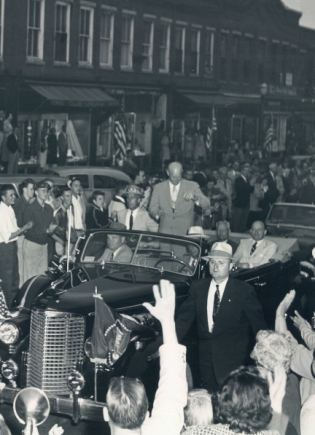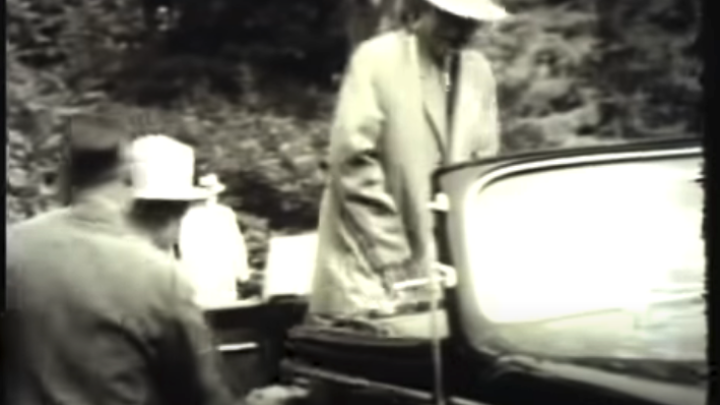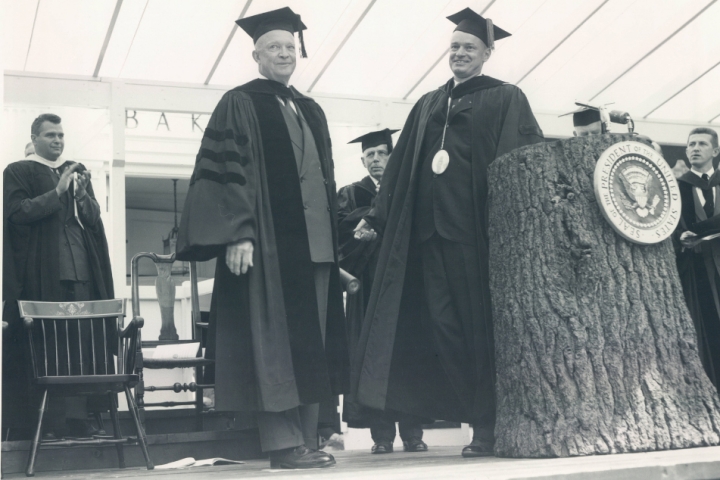On June 14, 1953, as our Commencement exercises were about to begin, we graduating seniors formed two lines and President Eisenhower, accompanied by Dartmouth President John Sloan Dickey ’29, walked between them, flashing his famous grin as he passed within inches of me. I cannot remember that day without reliving the excitement we all experienced.
As always, Dickey composed an elegant honorary degree citation, and I felt pride in my College as he read the words and awarded Eisenhower an honorary doctorate. The president was scheduled to make a few remarks in appreciation of the honor and to wish us well. Some of those words flew across the globe and instantly became a part of Dartmouth’s history—as well as America’s.

For three years Sen. Joseph McCarthy of Wisconsin, the Republican chairman of the U.S. Senate Permanent Committee on Investigations, had been relentlessly attacking the U.S. State Department, the Voice of America and a host of prominent political figures by making lurid and ultimately unproven claims, the most infamous of them being that he had a list of officials in the State Department who were “known Communists.” Those accused were intimidated, virtually paralyzed in their inability to effectively defend themselves and their reputations. While McCarthy was touring the country delivering his poisonous speeches, his two Senate aides, Roy Cohn and G. David Schine, were touring U.S. government libraries around the world, demanding that books by “subversive” authors be purged from the shelves.
McCarthy’s tactics outraged all decent people, and I wondered if the Republican Party, which I strongly supported, would disassociate itself from him even as his power remained largely unchecked.
I was not thinking of Sen. McCarthy as I watched Eisenhower rise to deliver what were expected to be his brief remarks. But Eisenhower decided to add something more substantive.
“Don’t join the book burners,” he said. “Don’t think you are going to conceal faults by concealing evidence that they ever existed. Don’t be afraid to go in your library and read every book, as long as any document does not offend our own ideas of decency. That should be the only censorship.”
The president’s comments, blandly delivered, immediately became headlines. Few doubted that Eisenhower had McCarthy in his sights that day at Dartmouth.

